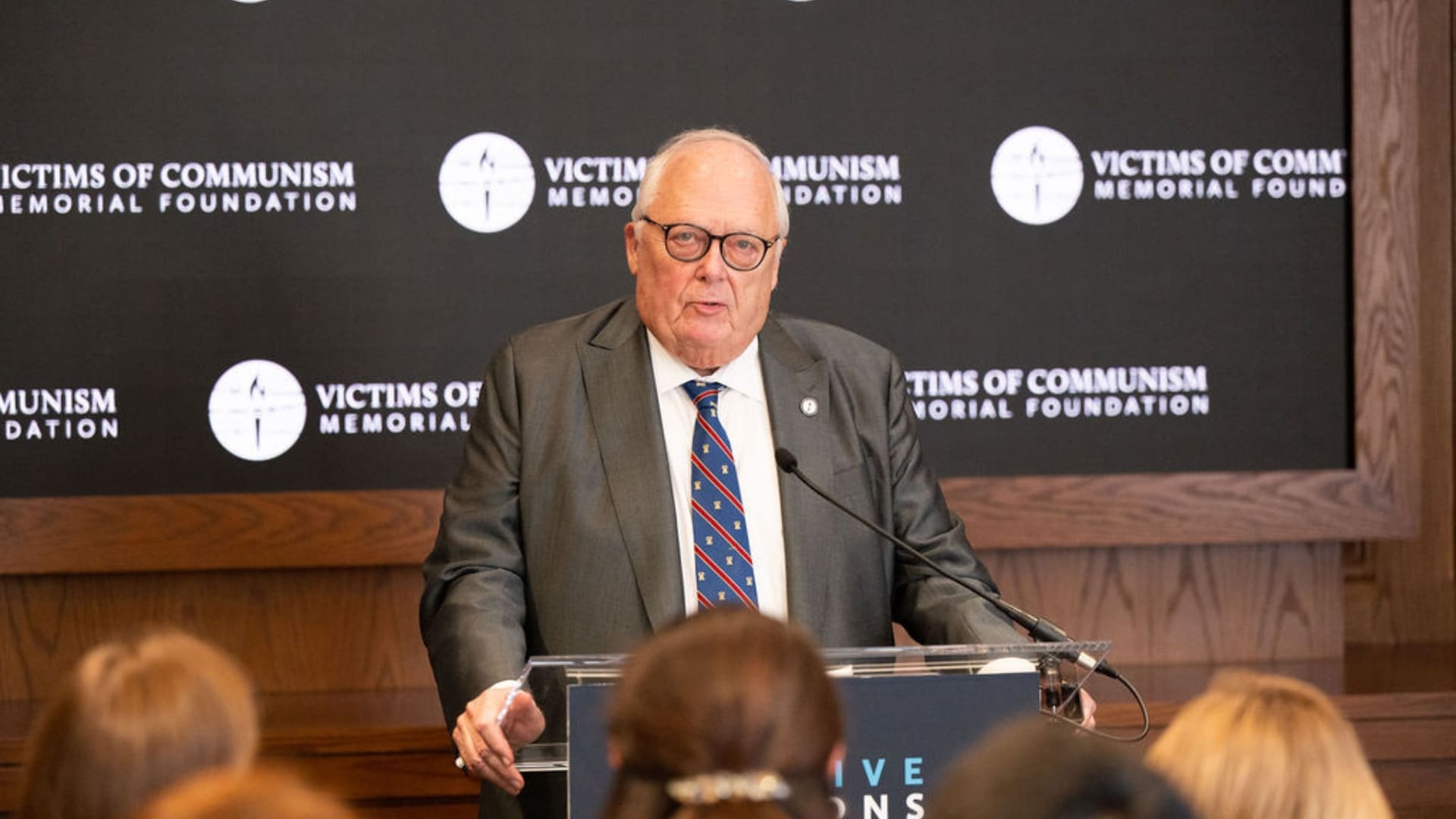Remembering Ed Feulner: Warrior for the Light

I met Ed Feulner at the Philadelphia Society’s October 1969 meeting in Philadelphia, not that I was formally invited but rather because invitee David Jones of the then Charles Edison Memorial Youth Fund could not attend but had persuaded someone, probably Ed, to accept a substitute in a non-precedent-setting manner. The title of that session was “The Outlook for Freedom in the Seventies,” a theme and focus as apt now as then. Ed and I knew one another for, in that 1969, we were both working on Capitol Hill and had co-edited slightly different editions of Readings on East-West Trade.
Ed was Congressman Phil Crane’s chief of staff, brought in to steer in a straightened direction that ship of conservative thought, and I would several years later become Congressman Jack Kemp’s chief of staff. Phil Crane was a well-learned academic and Jack Kemp was a well-experienced professional athlete. Crane and Kemp each functioned within their own frames of reference but both were committed to policies and practices best assuring the American Dream for those seeking it in accordance with the rules. Over the decades which followed, Ed and I worked together on many causes in many times and in many places. I treasure every one of them, for I learned from each, especially when we were not initially of the same mind on how to most effectively reach a goal.
Ed’s passing is an enormous loss to America, Americans, and the American values embodied in post-WWII conservatism here and abroad. The same is true on an international scale. He has passed to a new life, and memories of him, his words and his deeds will continue to serve as guides to us. We should celebrate his leaving to us of his work not yet finished and do as much as we can—marshalling thoughts, energy, and actions—to complete that work.
In gatherings to remember him, we can read or hear the list of organizations to which he gave his advice and counsel as founder, chairman, chief executive office, director, trustee, or whatever other title, but we must not miss the advice and counsel he gave for the founding of other organizations and, as importantly, the advice and counsel that he gave to others. I’m speaking of those one-on-ones at the end of a day at the office, or during drive time, or walking along a beach, or sitting at a restaurant table, or flying to or from wherever or waiting in an airport lounge.
He would always give his best assessment from his considered judgment, and countless lives were positively changed by them. When a staffer asked him a question about how to handle a sensitive issue, or the Duke of Edinburgh asked his help in raising funds in the United States for the University, or the Prince of Liechtenstein asked him how to understand the President of the United States, or an official in South Korea, Taiwan or elsewhere asked him how to strengthen its ties with Washington, he responded with his most considered thoughts.
In recent years, I’d sometimes drive Ed to his Alexandria condominium on the Virginia shoreline of the Potomac between Ole Towne Alexandria and George Washington’s Mount Vernon. The last time we did this followed a Victims of Communism event at its museum near Lafayette Square across from the White House. We discussed communism’s ignorance-based resurgences from American colleges’ lecture halls, to distant capitals, to the news hour. We said our good-byes, and Ed walked toward the condo where his work probably continued as usual well into the night. Several weeks later a recalled quote hit me like a blow to the forehead:
Life is full of goodbyes we don’t realize are final.
In England, there is an ancient inn in Wolvercote, a short walk or bike ride from Oxford and its universities. It is The Trout Inn and has been there for centuries. In its earliest years Henry II sometimes quartered there because his publicly acknowledged mistress, Rosamund, was sequestered at the Benedictine’s Godstow Abbey immediately across the narrow Isis, as what becomes the Thames is known that far upstream. Move forward by centuries and Oxford’s Charles Lutwidge Dodgson, pen name Lewis Carroll, would sit on the larger of two sitting stones by the water’s edge to read to the smaller seated Alice Liddell each chapter as it was finished of his Alice’s Adventures in Wonderland manuscript. Move in mind to the last century and J.R.R. Tolkien, also of Wolvercote, sat at the same table each Sunday afternoon over which table now hangs a hand-painted verse of profound imagery:
I sit beside the fire and think of people long ago.
And people who will see a world I shall never know.
But all the while I sit and think of times that were before,
I listen for returning feet and voices at the door.
I recalled this verse on the occasion of the recent passing of our dear and mutual friend, Lee Edwards. I recall it again, now, as it speaks to our Warrior for the Light, Ed Feulner. We shall greatly miss the sounds of their returning feet and voices at our doors.
Randal Teague is Vice Chairman of the Victims of Communism Memorial Foundation.

